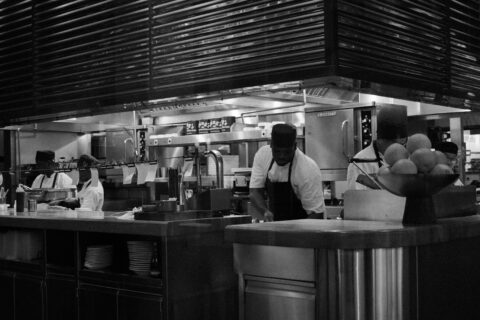A food safety culture is the attitude, behaviours and priorities given to food safety within an organisation or community.
A strong food safety culture requires commitment from every level of an organisation, from the executives to the frontline workers. Food Safety is more than protocols and procedures, it’s more than ticking boxes. It’s about instilling the right attitudes and behaviours in everyone. A strong food safety culture means that every individual takes responsibility, pride, and care in producing safe food.
In Australia, a country renowned for world-class restaurants and its world-class café culture, food safety is important. Unfortunately, every year there are around 4.7 million cases of food borne illness in Australia, plus 47,900 hospitalizations and 38 deaths.
Why is a Food Safety Culture Important?
There are many reasons why a food safety culture is important to your organisation. The effects of a bad food safety culture can be felt across every level of an organisation.
Consumer Health
The most important reason to build a strong food safety culture is the protection of the health of your customers.
Consumers expert to be able to enjoy the food they purchase with no risk of food poisoning or death. Implementing food safety procedures throughout the business, reduces risks of contamination and helps ensure food is safe to eat.
Regulatory Compliance
There are many laws and regulations that food businesses need to abide by. FSANZ Standard 3.2.2A is legislation that outlines a food safety management system and mandates training for Food Handlers, Food Safety Supervisors and recording keep for food safety controls.
In addition to the above standard, there are a number of food standards that food businesses need to comply with. If you want to know more, take a look at the food standards code.
We have a guide on getting a food safety supervisor certificate if you want to know more.
Trust & Reputation
Finally, if your business serves unsafe food and people get sick there is the potential for reputational damage. Many people would refuse to go to a restaurant that had served unsafe food.
Characteristics of Strong Food Safety Culture
Here are some of the characteristics of a strong food safety culture:
Senior Leaders
The senior leaders in a company set the tone for the business. They need to openly commit to food safety as a top priority and actively demonstrate their dedication to it.
They could hold regular meetings to discuss food safety performance and follow up on key actions decided in these meetings.
Everyone is involved
Everyone in the organisation should be involved in continual improvement, from food handlers to the dishwasher. A key characteristic is that not only does everyone follow best practice but they actively contribute to developing, maintaining and asking questions when they don’t understand something.
All staff should be empowered to offer suggestions on improving food safety performance or calling out unsafe behaviours. They should also be encouraged to ask questions if they don’t understand practices.
Accountability
Everyone needs to understand their role and responsibilities, and how they affect food safety. They should be encouraged to share what they know with new staff.
Knowing and acting
Teams should be trained in food safety regularly and have updates and refreshers when needed. They should be encouraged and rewarded for a strong commitment to food safety.
Continual improvement
Proactively improving processes and procedures is key to long term success.
How to build a culture of food safety
Achieving a good food safety culture takes leadership and commitment but it can happen.
The first step is to commit you and your team to food safety and the next step is to know where you currently stand in your food safety culture.
Food Standards Australia New Zealand have an excellent food safety questionnaire which can help you identify key areas you are doing well and areas to improve.
After you know the areas to improve, there is also a checklist which gives you actionable steps to take to improve your culture.
Continue improving.
Ready to book a food safety supervisor course?




